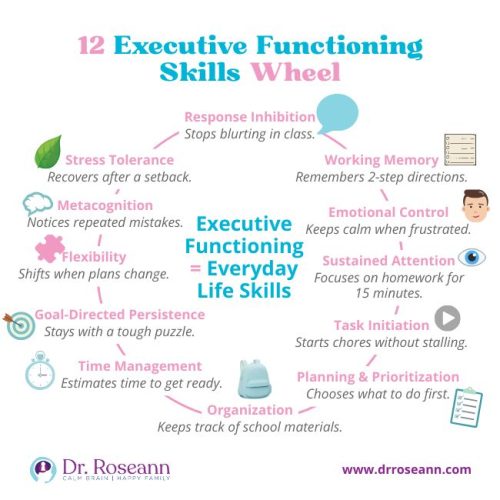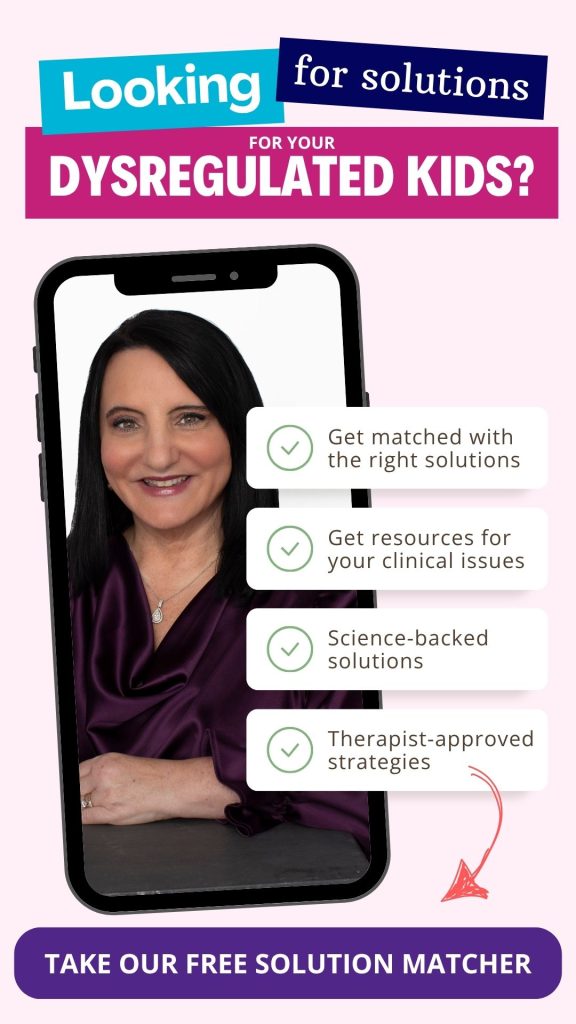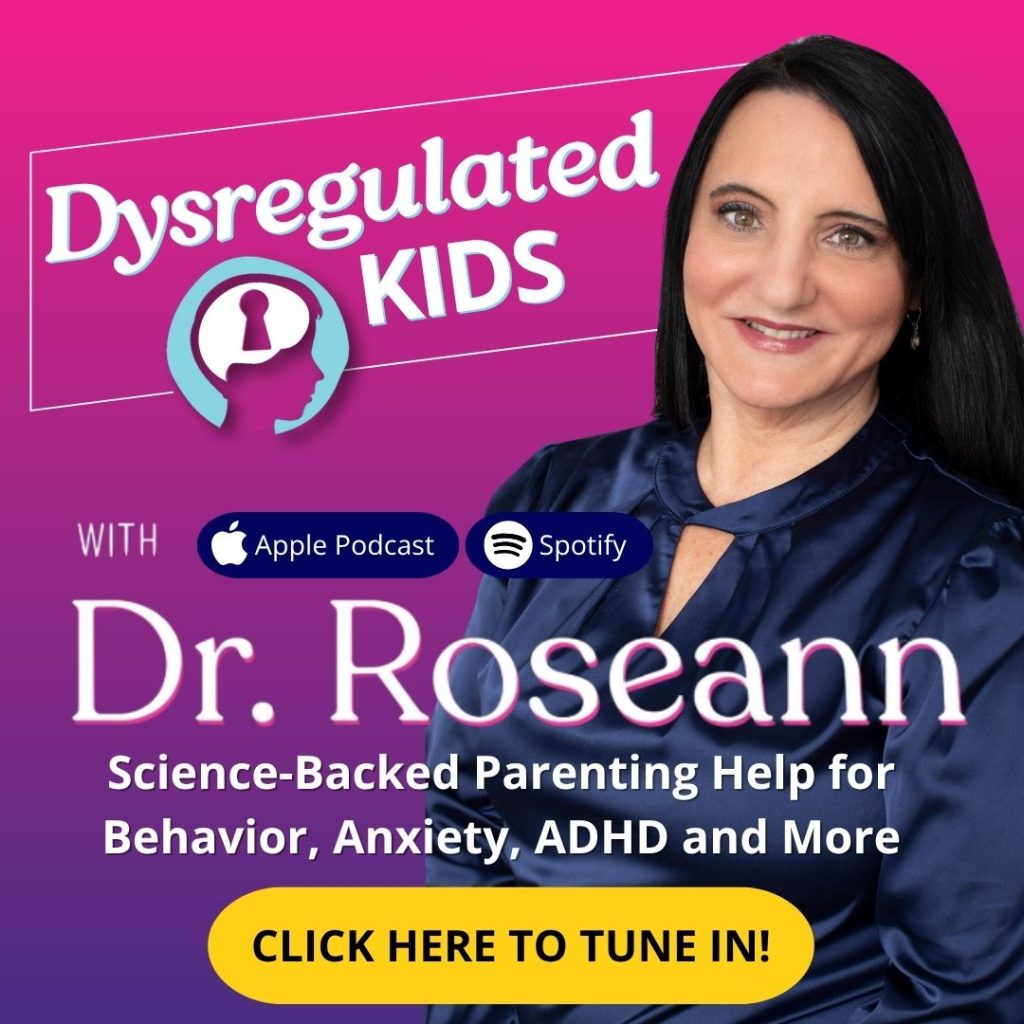If every school morning feels like a battle, you’re not alone. Forgetting homework, taking forever to get ready, or melting down over small requests are often signs of executive functioning challenges—not laziness.
When these brain skills lag, kids feel ashamed and parents feel drained, but understanding the root issue opens the door to real support.
In this guide, we’ll cover:
- What executive functioning challenges are and why they matter
- The 12 core skills kids need for success.
- How these challenges show up at different ages
- The difference between ADHD and executive functioning problems
- What happens when kids are misunderstood as “lazy”
- Proven ways to help your child build skills and confidence
By the end, you’ll have a clearer understanding of what’s really happening with your child. You’ll learn how to support them without nagging or shame.
What Are Executive Functioning Challenges?
Executive functioning is like the brain’s management system. It’s housed in the frontal lobe and helps kids:
- Stay organized
- Manage time
- Focus and shift attention.
- Control impulses
- Plan and complete tasks
When these skills are weak, even smart kids struggle. They may forget homework, miss deadlines, lose their belongings, or melt down when plans change.
It’s not bad parenting—it’s a dysregulated brain. Behavior is communication.

How Do I Know If My Child Has Executive Functioning Problems?
Parents usually notice repeating patterns of struggle:
- Constant reminders are needed for chores and homework
- Difficulty transitioning from one task to another (“Just one more game!”)
- Big emotions when things don’t go as planned
- Forgetfulness about everyday items like lunchboxes or jackets
- Struggles with staying organized or managing time
Example:
Angela, a mom of a 10-year-old with anxiety, said her son could recite facts about dinosaurs for hours but forgot to bring home his math book. She learned these were executive functioning challenges. So, she felt less frustrated and began teaching him small routines.

What Are the 12 Executive Functioning Skills?
These skills don’t fully mature until around age 25. If there’s weakness in even just one, it can impact school performance, friendships, and independence.
The 12 Core Executive Functions
- Response Inhibition
- Working Memory
- Emotional Control
- Sustained Attention
- Task Initiation
- Planning & Prioritization
- Organization
- Time Management
- Goal-Directed Persistence
- Flexibility
- Metacognition (thinking about thinking)
- Stress Tolerance
| Skill | Definition | Parent-Friendly Example |
|---|---|---|
| Response Inhibition | The ability to stop yourself from acting on an impulse. | Your child blurts out answers in class instead of raising their hand. |
| Working Memory | Holding and using information in the short term | Your child forgets the two-step direction you just gave (“brush teeth, then put on PJs”) |
| Emotional Control | Managing emotional responses to fit the situation | Melts down when a sibling changes the TV channel |
| Sustained Attention | Staying focused on a task despite distractions | Loses track of homework after 5 minutes unless you sit next to them |
| Task Initiation | Starting tasks independently and on time | Stares at the math worksheet for 20 minutes before beginning |
| Planning & Prioritization | Deciding what steps are needed and in what order | Has three assignments but spends all night decorating the cover page of one |
| Organization | Keeping track of belongings, materials, and information | Backpack looks like a “black hole” full of crumpled papers |
| Time Management | Accurately estimating how long things will take | Thinks getting ready for school will take 5 minutes, but it actually takes 25 |
| Goal-Directed Persistence | Working toward goals even when it’s challenging | Gives up on a puzzle after 3 tries instead of sticking with it |
| Flexibility | Adjusting to changing demands or perspectives | Has a meltdown when dinner plans change from pizza to tacos |
| Metacognition | Thinking about your own thinking and learning | Doesn’t realize they made the same mistake twice on a worksheet until you point it out. |
| Stress Tolerance | Coping with stress and recovering from setbacks | Panics during a test and can’t remember what they studied the night before. |
What Does Poor Executive Functioning Look Like at Different Ages?
Executive functioning challenges look different depending on your child’s age:
- Elementary school: Needs constant help to complete chores, forgets instructions, and avoids starting tasks.
- Middle school: Has trouble with impulse control, resists stopping video games, struggles to adapt when plans change.
- High school: Misses deadlines, can’t manage long-term projects, and is constantly late or unprepared.
Parent Story: A father shared that his 15-year-old could spend hours coding complex programs. But his child still forgot to turn in his English assignments. Once they reframed it as an executive functioning issue, they implemented reminders and scaffolds that were helpful.
Is It ADHD or Executive Functioning Problems—or Both?
Parents often ask: “Does my child have ADHD or just poor executive functioning?”
- ADHD is a clinical diagnosis that often comes with EF challenges.
- Kids with anxiety, depression, OCD, or autism also struggle with executive functioning.
- Not all kids with EF challenges have ADHD.
“Executive functioning deficits are transdiagnostic—they cut across many conditions, not just ADHD.” – Barkley, R. A. (2012)
What Happens When Kids Are Labeled “Lazy” Instead of Supported?
When adults misinterpret EF challenges, kids get unfair labels:
- “Lazy”
- “Unmotivated”
- “Defiant”
This increases shame, erodes confidence, and damages family relationships. Instead of learning skills, kids withdraw or push back harder.
Example:
A mom described feeling like “a broken record” asking her daughter to clean her room. After EF coaching, she realized her child wasn’t being difficult—she simply couldn’t picture the finished task.
Executive Functioning Challenges: The Hopeful Path Ahead
If your child’s daily struggles feel exhausting? Remember: this isn’t laziness, it’s a brain-based challenge.
With the right tools, children can develop and strengthen their executive functioning skills. You’ll feel proud of their progress.
You’re not alone. Let’s calm the brain first, then teach the skills. It’s gonna be OK.
If your home feels stuck in the cycle of nagging, meltdowns, and unfinished tasks, there is a way forward. You can reach out to our team. We’ll help you learn how executive functioning coaching can help your child take independent steps to success.
Read more about: Children’s Executive Functioning: Hidden Keys to Calm and Success
FAQs About Executive Functioning Challenges in Kids
What are the signs of poor executive functioning?
Forgetfulness, emotional meltdowns, trouble starting tasks, disorganization, and difficulty managing time.
Can kids outgrow executive functioning challenges?
Not without support. These skills typically develop by the mid-20s, but weaknesses often need direct teaching and coaching.
Is executive functioning the same as intelligence?
No. Many bright kids struggle with EF skills like planning and time management.
Does my child need medication for EF challenges?
Not always. Many children benefit from coaching, parent support, and brain-based therapies, such as neurofeedback—sometimes in combination with medication.
Terminology
- Executive Functioning (EF): Mental skills that help with planning, organizing, and regulating behavior.
- Working Memory: The brain’s short-term “scratchpad” for holding and using information.
- Neurofeedback: A therapy that helps the brain self-regulate through real-time feedback.
Citations
Diamond, A. (2013). Executive functions. Annual Review of Psychology, 64(1), 135–168. https://doi.org/10.1146/annurev-psych-113011-143750
Zelazo, P. D., & Carlson, S. M. (2012). Hot and cool executive function in childhood and adolescence: Development and plasticity. Child Development Perspectives, 6(4), 354–360. https://doi.org/10.1111/j.1750-8606.2012.00246.x
Always remember… “Calm Brain, Happy Family™”
Disclaimer: This article is not intended to give health advice, and it is recommended to consult with a physician before beginning any new wellness regimen. The effectiveness of diagnosis and treatment varies by patient and condition. Dr. Roseann Capanna-Hodge, LLC, does not guarantee specific results.
Are you looking for SOLUTIONS for your struggling child or teen?
Dr. Roseann and her team are all about science-backed solutions, so you are in the right place!
©Roseann Capanna-Hodge










